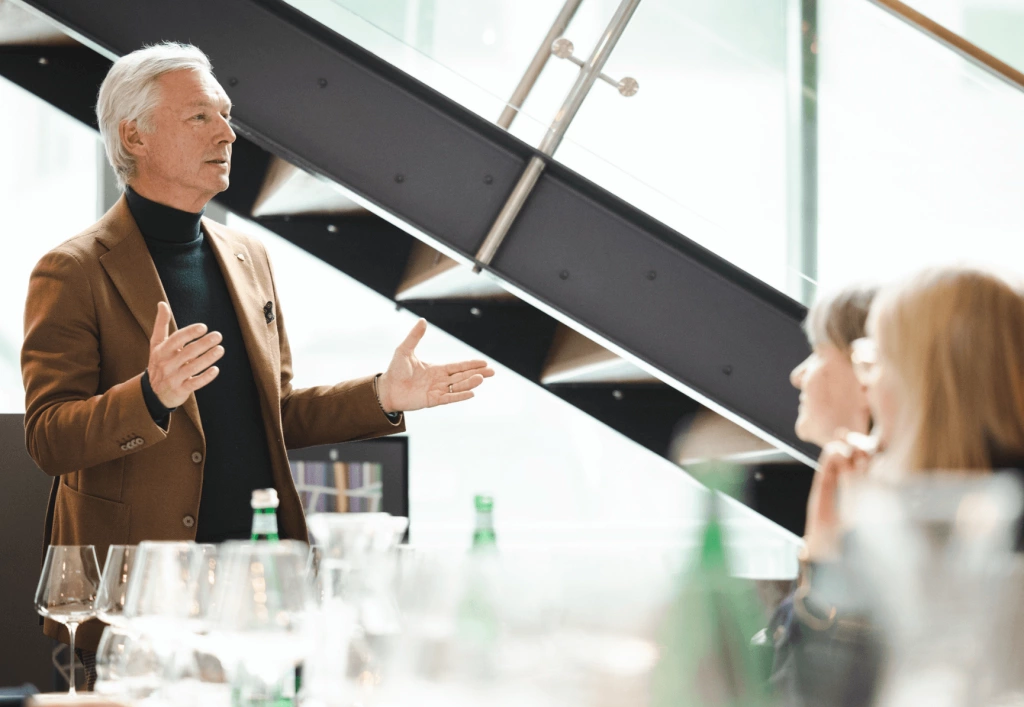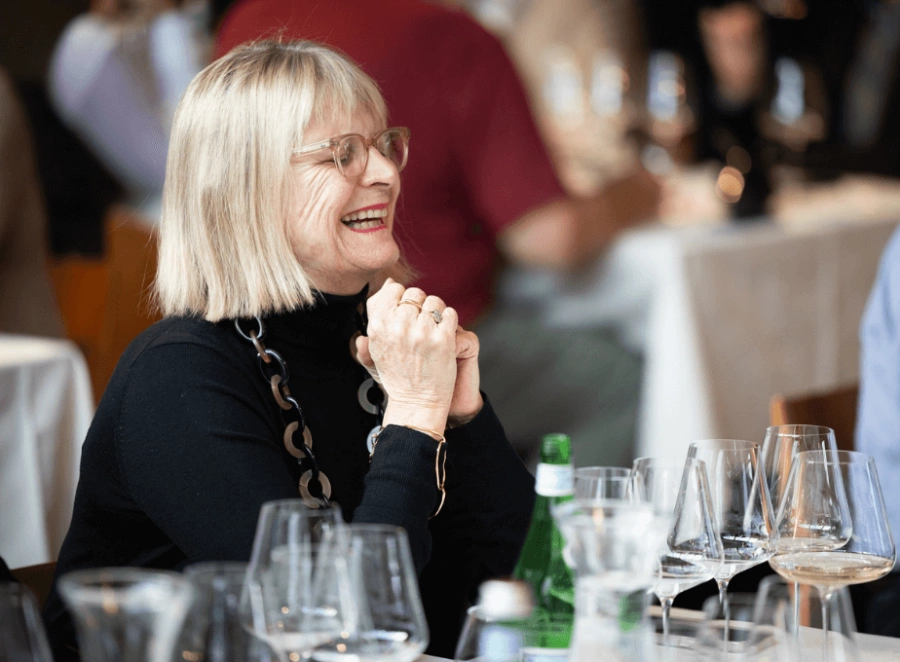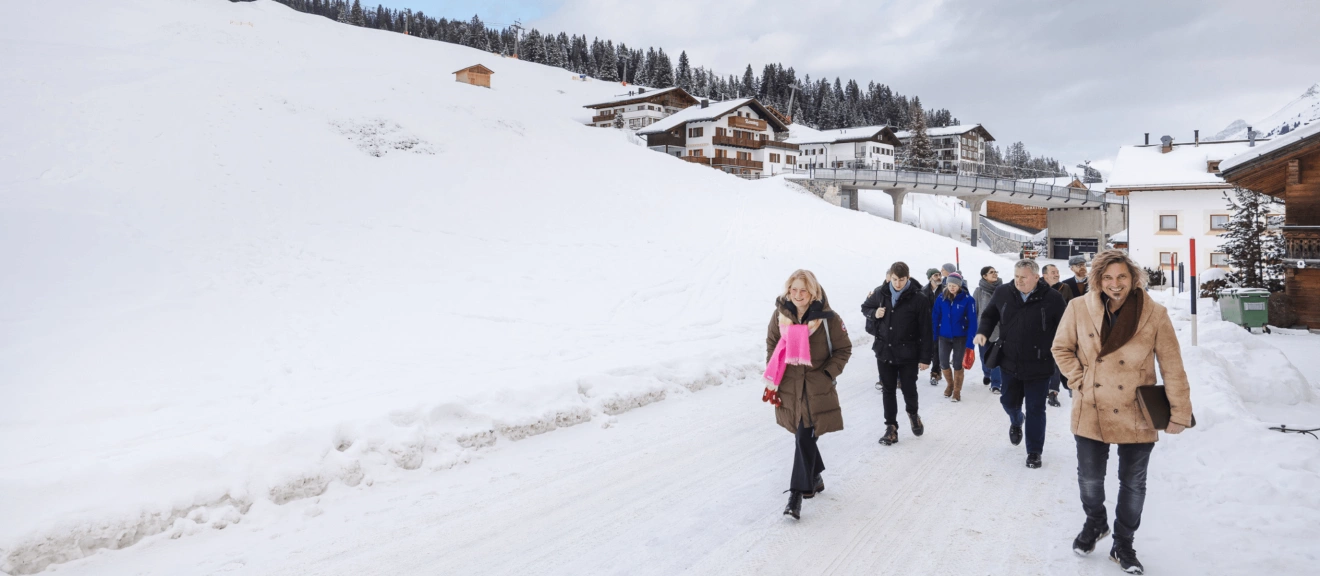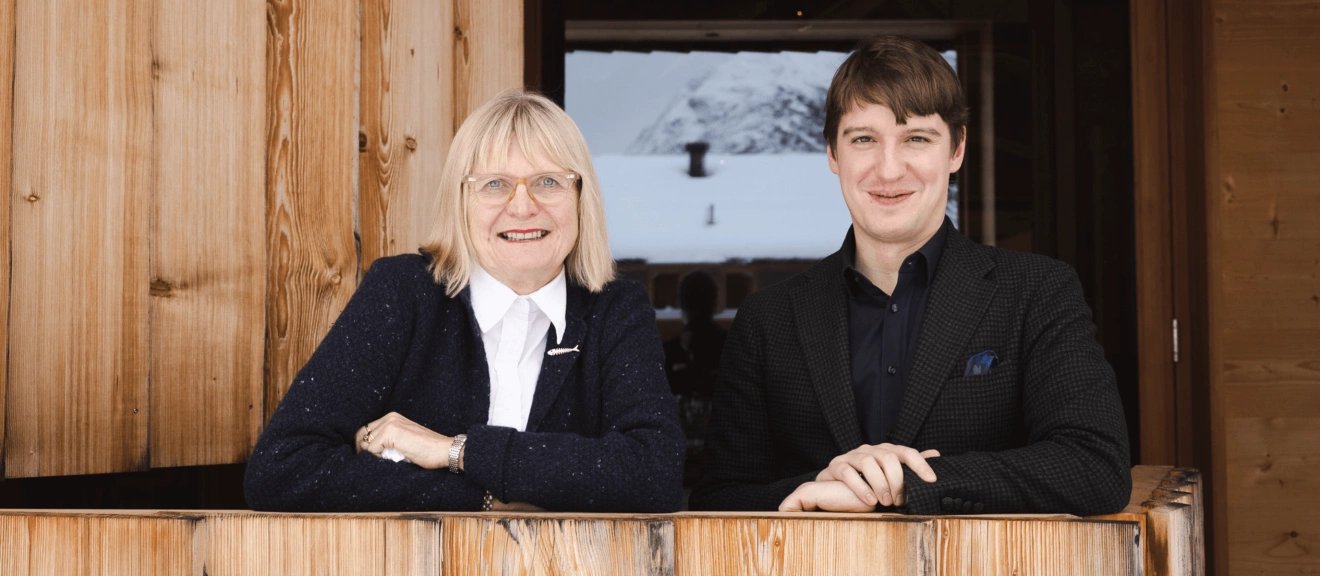
Lech Zürs Tourism CEO: "You have to experience it!"

The CEO of Lech Zürs Tourism explains in an interview how the small village in the Austrian Alps became an internationally sought-after hotspot for gourmets and wine lovers, what will be important for winter tourism in the future and what highlights await guests at this year's edition of Arlberg Weinberg.
It is no coincidence that the 1,500-inhabitant village of Lech Zürs am Arlberg is frequently described as a "world gourmet village". Its top restaurants boast more than 50 Gault&Millau toques. Yet despite its international flair which attracts visitors from around the globe, Lech has retained its village character.
"Lech Zürs is the epitome of a perfect holiday village," is how Hermann Fercher sums it up. In his role as Head of Tourism, he is well versed in how Lech became THE destination for upscale winter tourism for a gourmet clientele. "In the 1950s, a very discerning clientele discovered Lech for themselves. Very wealthy personalities from metropolises such as London, New York and Hamburg came to us and brought with them a certain expectation – also in terms of cuisine. And the people of Lech knew how to fulfil this desire for top-notch gourmet food," recalls Fercher.

Concentrated wine and gourmet expertise
The Arlberg Weinberg event format, which has been held every year since 2015 at the start of the winter season in December, exemplifies this concept of premium indulgence. "The basic idea was to bring restaurateurs and winemakers together at a quieter time for both. For the restaurateurs it's the pre-season, the winemakers have most of their work behind them and can come to Lech to relax," explains Fercher. However, such concentrated wine expertise combined with Lech's top cuisine naturally appeals also to gourmet guests, and so the "recreational idea became a business idea". What was once intended as a "simple and friendly" get-together has, according to Fercher, developed into a highly professional and diverse event programme that covers an "entire spectrum of enjoyment".
"No sooner does one event end, we start planning the next one."
The programme – totalling 34 wine and culinary events this year – requires around a year's lead time and will once again feature numerous highlights in 2023. "Port wine is certainly one of the most underrated topics in the wine world, so I'm particularly pleased that we are focussing on this at Arlberg Weinberg," says Fercher. And, in line with Lech's sustainability strategy, the topic of soft pruning fits perfectly into the programme. "The Best Bottle Award is also a highlight for me personally every year, because it involves the lifeblood of the catering and hotel industry." The atmosphere at the now legendary Delicious Ring culinary tour is particularly fun and sometimes exuberant: "After the second or third stop, it's already very funny and at the end everyone is completely overwhelmed by so many good wines and the wonderful food."

Challenges, strategies and visions
One could also risk being overwhelmed by the current challenges facing tourism professionals, especially those in winter sports regions. "We believe in the continued existence and attractiveness of winter tourism," emphasises Fercher, but acknowledges initial changes in booking behaviour are evident. The winter season in Lech runs from 1 December 2023 to 21 April 2024, however "the holiday periods are still very well booked, but we are noticing that people are planning before, after and in-between more often at very short notice." Outside of the main ski season, there is a need for incentives to come to Lech – such as Arlberg Weinberg and formats that are independent from winter sports. For example, the Tanzcafé Arlberg music festival was created in Lech for the off-season.
"One of our strategic focal points is certainly the autumn business," reports the tourism boss, adding that the main target group here is conference guests, who can be offered the perfect infrastructure with the opening of the Lechwelten planned for mid-2024.
When Hermann Fercher thinks about the future, one topic is particularly front of mind: sustainability. "We are aiming for certification with the Austrian Ecolabel," he reports. "But we have already achieved a lot in terms of sustainability, such as a car-free Oberlech. And we are also heating autonomously with our own biomass heating plant." Sustainability and environmental awareness are becoming increasingly important, especially for the aforementioned conference guests and companies, who specifically mention it when making bookings. With private guests, however, this has so far been less evident in bookings. "However, society and we as a location will certainly continue to develop here."

The impact of price rises and inflation on spending are also less noticeable in Lech Zürs. "Lech is positioning itself as a refuge for private luxury moments and our guests are prepared to spend money on these special moments," says the Tourism CEO.
At the end of the interview, Hermann Fercher shares his personal favourite moment: "As a hunter, I love perfectly prepared venison medallions with a good red cabbage and Gernot Heinrich's Salzberg Blaufränkisch and Merlot blend."














